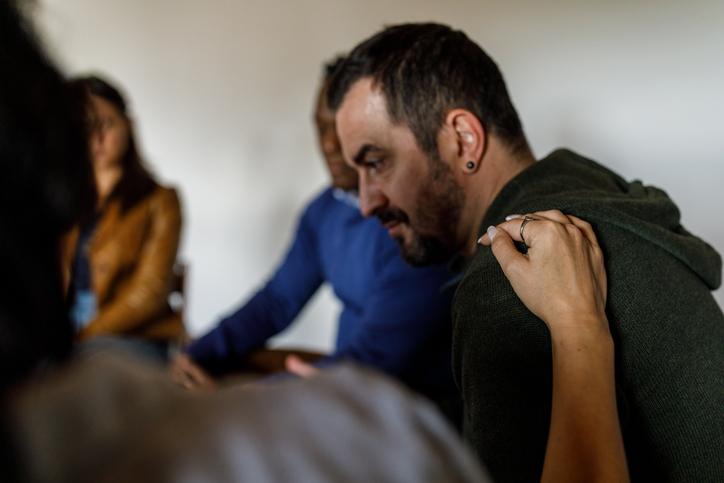Are you more at risk for relapse at certain times of year or in certain situations? The honest answer is: yes.
Relapse is a universal experience, but it finds us in unique ways and through triggers that may look or feel insignificant to others. However, those who struggle with substance use disorder can be especially vulnerable to relapse when taken out of their normal recovery routine. Stress, confrontational family gatherings, financial strain, and unusual weather can all contribute to relapse. Let’s look at how to prepare oneself for these types of triggers.
Interpersonal Issues and Trauma as Relapse Triggers
A large number of residents in our St. Gregory Recovery program report anxiety and fear around family gatherings. Often, someone who traumatized them will be present. In other cases, unsupportive or reactive family members or family friends may show up. Childhood homes can also feel very threatening and suffocating. Family time at any location can feel tense, especially when you have to fend off unwanted questions about your addiction and recovery.
All of these elements can weigh on a person’s ability to cope in a healthy way—pushing them to eventually relapse. These elements can present themselves at a family reunion, on a family vacation, or at a celebration of a summer holiday. If you know you’ll be expected to attend a family event that may be triggering, you can prepare for–or avoid it altogether.
How Financial Strain Can Trigger Relapse
Unfortunately, addiction to drugs or alcohol can create costly debts. Whether you spent your life’s savings on substances, sustained a DUI fine, or had to pay for a part of your rehabilitation, addiction is expensive. In recovery, mounting bills combined with the constant pressure to buy things can cause intense stress and feelings of shame, guilt, and regret. It’s hard to overcome feeling like a failure when you can’t buy the latest electronics or treat your family to a vacation or buy your friend a nice birthday gift.
Similarly, if travel is required for an event, just getting from point A to point B can be expensive enough to cause intense stress. Remember: you’re not weak or abnormal. You just need to find a healthy way to calm yourself and communicate your needs to those who can offer support.
If your event or upcoming gathering includes spending lots of money or traveling long distances, understand that is a strain on your sobriety and must be planned for or avoided entirely.
The Negative Impact of Nostalgia on Sobriety
When we return to childhood or adolescent spaces, we might be temporarily returning to toxic relationships and situations that we worked hard to overcome in cognitive behavioral therapy (CBT). Having to deal with the loneliness or ugly feelings and thoughts that were so rampant in those spaces can directly influence a relapse.
If you’re at a point in your social life where you’re invited or feel required to return to a triggering location or interaction. prepare as well as you can to safeguard your sobriety. Avoiding the function altogether is also an option.
How To Spot Your Relapse From a Mile Away No Matter What Occasion
It’s best to never overestimate the relapse-triggering power of any special event. Most importantly, you’ll need to learn to recognize the physiological indicators of pending relapse in your body, such as:
- Falling into unhealthy sleeping, eating, and hygiene habits
- Ignoring elements of your post-treatment plan
- Feeling more tense, agitated, anxious, or annoyed than usual
- Being unable to focus, feeling socially isolated, and feeling intense apathy, sadness, and despair
- Having intrusive, regressive, or disturbing thoughts and compulsions
While events and situations with family and friends can be triggering, it’s also important to remember that loneliness is a relapse trigger as well. Remain open to the healing possibilities of being with friends or family who support and love you.
Beat Relapse with St. Gregory Recovery Center in Iowa
Our substance addiction specialists are experts in their fields and know how to support you through every relapse you may experience. If you feel a relapse coming on or would like to prepare for a potential relapse trigger, we can help. Remember, too, that relapse does not predict whether you can achieve long-term sobriety. Relapse is a chance to reevaluate your recovery plan and find new motivation. Contact us today with any questions.











